Mykolas Romeris University is a well-known university in Lithuania. The following is a detailed introduction to the school:
Introduction
Mykolas Romeris University is the largest social science university in Lithuania. It is named after Professor Mykolas Romeris, the father of the Lithuanian Constitution. It has outstanding research in the fields of law, public security and public administration. It also has strong strength in the fields of educational science, economics, humanities, communication, politics, psychology, sociology, management, etc.
Overview
Number of students: There are about 4,262 students, including 687 international students.
Number of faculty and staff: There are 306 faculty and staff in total, of which international faculty and staff account for 9%.
History and establishment time
The school was established in 2004.
School strength
Teaching staff: It has a professional and experienced team of teachers who have in-depth research and teaching experience in their respective professional fields and can provide students with high-quality education and teaching services.
Teaching resources: The school is equipped with modern teaching facilities, such as advanced laboratories, multimedia classrooms, professional moot courts, etc., which create good learning conditions for students. At the same time, the school's library is rich in resources, with a large number of academic books, journals and electronic resources to meet students' learning and research needs.
Scientific research results: It has carried out extensive scientific research in the fields of social sciences and humanities, published about 600 research papers each year, implemented about 50 research projects, provided about 50 contract-based services, and provided research-based expert services and solutions to relevant institutions and the public.
International cooperation: It actively cooperates with international universities and institutions and has established close cooperative relations with more than 300 universities, public and private institutions. It is a formal member of several international higher education organizations, such as the International Association of Universities, the European University Association, and the European Association of International Education. It has also carried out joint training programs with universities in France, Austria, Finland and other countries, and has established solid cooperative relations with universities in Asian countries such as South Korea, Japan and China.
Institutional Nature
Public non-profit university.
Educational Philosophy
Committed to empowering future leaders with knowledge, skills and abilities to define their own personal and collective future, embracing educational quality and academic freedom, adhering to freedom and responsibility, promoting diverse ideas, encouraging free expression and exploration, guaranteeing equal opportunities, safeguarding individual rights and upholding personal and professional integrity.
Key laboratories and disciplines
Key disciplines: Law is one of the most prominent disciplines of the school, and is highly recognized in Lithuania and even internationally. In addition, social sciences such as public security, public administration, sociology, psychology, and economics are also key disciplines.
Key laboratories: The social innovation laboratory network Mykolas Romeris University Lab, established in 2015, is an important scientific research platform of the school. It has several interdisciplinary laboratories, aiming to apply the latest social, humanistic, and technological research results to social and business needs. About 600 scientists and researchers work here, equipped with public spaces with mobile workstations, two auditoriums that can accommodate 80 and 30 people respectively, and all the necessary equipment for seminars and meetings.
Department settings
The school has the following departments:
School of Law: Provides comprehensive and in-depth legal education and cultivates professional legal talents.
School of Public Security (Kaunas): Focuses on teaching and research in the field of public security, and cultivates professionals in public security management for the society.
School of Humanities and Social Studies: Covers multiple disciplines such as sociology, psychology, and communication, aiming to cultivate comprehensive talents with a solid foundation in humanities and social sciences.
School of Public Governance and Business: Covering majors such as public administration, economics, and business management, providing professional management talents for government, enterprises and other institutions.
Ranking
In the 2025 QS World University Rankings, it is ranked between 1001 and 1200.
In the ranking of the World University Rankings, its academic reputation index score is 5.30, the employer reputation index score is 9.50, the teacher-student ratio index score is 14.30, the citation rate per teacher index score is 4.20, the international faculty ratio index score is 12.50, the international student ratio index score is 27.80, the international research network index score is 1.00, the employment outcome index score is 21.70, the sustainability index score is 8.40, the comprehensive score is 8.86, and the overall ranking is 1108.
Expenses
Tuition fees: Undergraduate courses are about US$2,935 per year for local students and at least US$2,933 per year for international students; Master's courses are about US$3,148 per year for local students and US$3,334 per year for international students.
Living expenses: Monthly living expenses are about US$500-800 Euros, including accommodation, food, transportation, daily necessities and other expenses. The specific cost varies depending on personal lifestyle and consumption habits.
Campus
Campus location: Located in Vilnius, the capital of Lithuania. Vilnius is the cultural, economic and political center of Lithuania. It has rich historical and cultural heritage and modern urban facilities, providing students with a good learning and living environment.
Campus facilities: The teaching facilities on campus are advanced. In addition to the laboratories and libraries mentioned above, there are also comfortable student dormitories to provide students with safe and convenient accommodation conditions. In addition, the school also has canteens, gymnasiums, student activity centers and other facilities to meet students' daily life and entertainment needs.
-
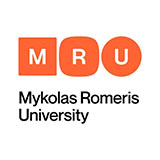
Mykolas Romeris University
-

LCC International University
-
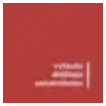
Vytautas Magnus University
-

ISM University of Management and Economics
-
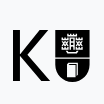
Klaipeda University
-
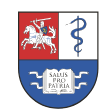
Lithuanian University of Health Sciences
-
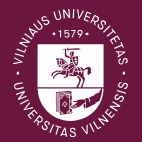
Vilnius University
-

Vilnius Gediminas Technical University
-

SMK College of Applied Sciences
-
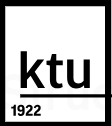
Kaunas University of Technology
-

Mesoamerican University
-

Istmo University
-

Mariano Galvez University of Guatemala
-

Regional University of Guatemala
-

Galileo University
-

Francisco Marroquín University
-

Rafael Landívar University
-

University of the Valley of Guatemala
-

University of San Carlos of Guatemala
-

Technological Institute of Tlaxcala Plateau
-

Golfo University
-

Technological University of South Sonora
-

Technological University of Huejotzingo
-

Tizimín Institute of Technology
-

Chilpancingo Institute of Technology
